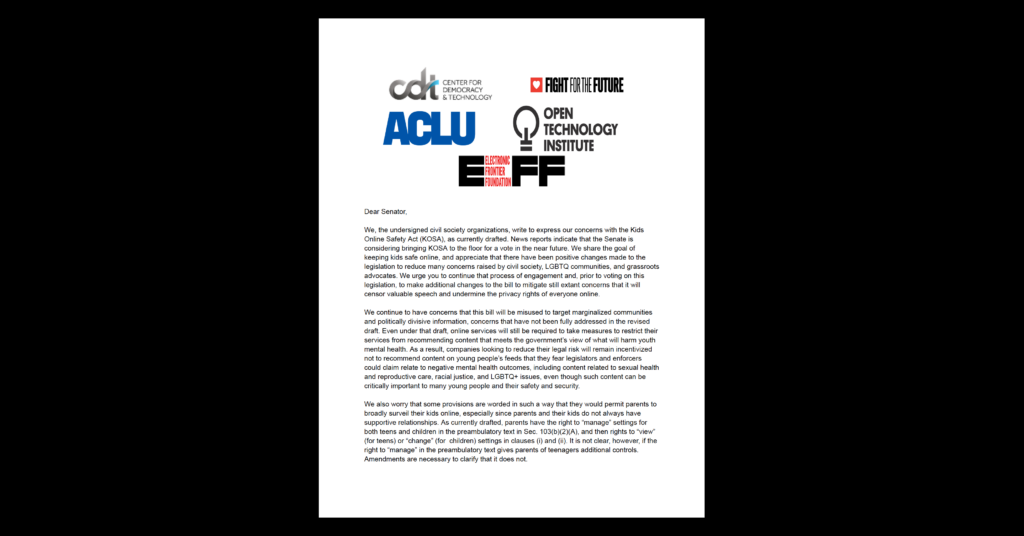Free Expression, Privacy & Data
Beyond Bright Shiny Objects: Situating Children’s Privacy within a Comprehensive Privacy Framework
Washington is experiencing a “Privacy Spring”: the online privacy debate has been rejuvenated and for the first time in over a decade, privacy is back on the policy table. Both the Federal Trade Commission (FTC) and the Department of Commerce have issued reports setting out robust frameworks for privacy protections, bills are being introduced in Congress, and the Obama Administration has announced support for baseline privacy legislation.
Not surprisingly, teenagers have become a focal point of the current debate over online privacy, tracking, and advertising. Thirteen years ago, concern about online collection of children’s personal information led to the enactment of the Children’s Online Privacy Protection Act (COPPA). Now, children’s advocates and policy makers have a more complex set of concerns: data-sharing by teens on social networking sites, behavioral advertising, data collection by mobile applications, and advertising campaigns aimed at teens that offer prizes and gifts in return for personal data. These concerns have prompted a raft of new proposals to address the perceived shortcomings of COPPA, including its application only to children under 13. Proposals have ranged from an expansion of the COPPA age to cover older minors under 18, a Do Not Track (DNT) law for kids, and a Fair Information Practices (FIPs) law that addresses the collection and use of teens’ data.
In this piece, I argue that that the drive for additional child and/or teen specific privacy laws is counterproductive and threatens to divert policy makers from the urgent task of enacting a comprehensive baseline privacy law for all Americans. Concerns about teen privacy will best be addressed through a strong comprehensive privacy law that requires adherence to Fair Information Practices by all commercial entities, including advertisers, that collect and use personal data.


